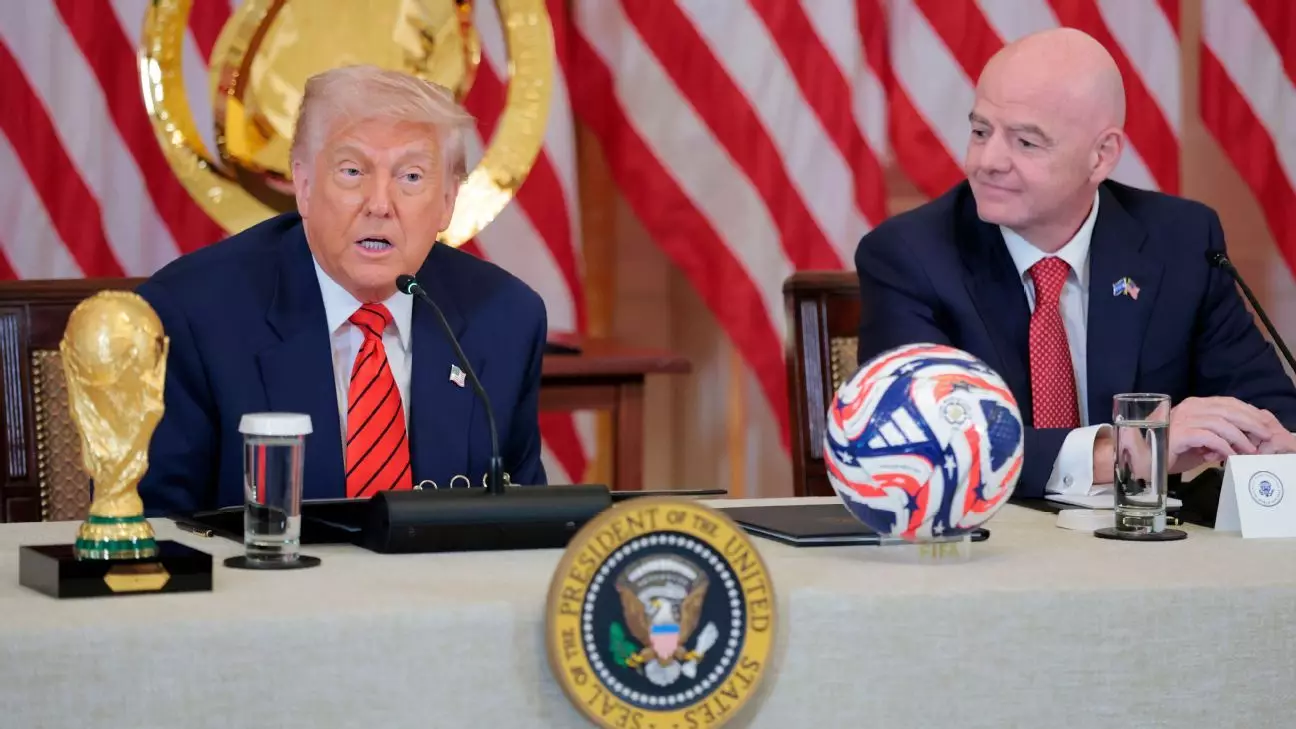The FIFA World Cup stands as one of the most significant sporting events globally, transcending mere competition to embody national pride and unity. The upcoming 2026 World Cup, which will be hosted by the United States, Canada, and Mexico, features an unprecedented 45 qualification spots. This license to showcase talent on an international stage can be a powerful motivator for countries to resolve conflicts. Recently, former President Donald Trump’s comments suggested that the possibility of Russia’s participation could serve as a “carrot” to encourage the nation to pursue peace in Ukraine. It’s a compelling idea, but also one that invites scrutiny regarding the ethics of linking sports to geopolitical issues.
Sport as a Catalyst for Change?
Linking sports with diplomacy is not a new tactic. Historically, international competitions often serve as platforms for cultural exchange and conflict resolution. The Olympics, for example, have been heralded as “the peace games,” even in times of tension. Trump’s mention of the World Cup as a potential “incentive” for Russia reflects a common sentiment: that the unifying spirit of sports can sometimes cut through the most entrenched conflicts. However, this expectation raises questions about the efficacy of such a strategy. Can the allure of football truly outweigh the complexities of war and international relations?
The Reality of Exclusion
While Trump professed unawareness of the existing bans imposed on Russian teams by FIFA and UEFA, the reality is stark. Since 2022, after Russia’s invasion of Ukraine, its national teams and clubs have been sidelined from international competitions, effectively barring them from the footballing world. This fact underscores a significant move by FIFA and UEFA, indicating that they prioritize ethical considerations over profit, aligning sportsmanship with global human rights. Infantino’s assertion that “we hope that something happens and peace will happen” reflects an idealistic view about the potential of sporting events to foster dialogue and restore normalcy.
The Brutality of War vs. the Joy of Sport
Yet, the proposition that sporting participation could mirror a cessation of violence is arguably overly simplistic. The ongoing war has resulted in unimaginable suffering, with reports of thousands of lives lost weekly; this tragedy far exceeds any kick-off or victory on a football pitch. The idea that a World Cup berth could be an incentive to stop such atrocities borders on being unrealistic. Rather, it risks trivializing the profound human cost of warfare, reducing complex socio-political issues into simplistic narratives suitable for media soundbites.
The Role of the Global Community
If the potential for Russia’s return to global sports is to be leveraged for peace, it necessitates a concerted effort that goes beyond the realm of football. The international community must engage in genuine diplomacy, focused on resolving the conflict rather than simply providing gleaming prizes for compliance. Ultimately, the World Cup can serve as a backdrop for necessary discussions about peace, but it shouldn’t be the primary motivator. The focus should remain firmly on humanitarian principles and the true repercussions of war, which far outweigh any temporary elation borne from a goal scored or a match won.

